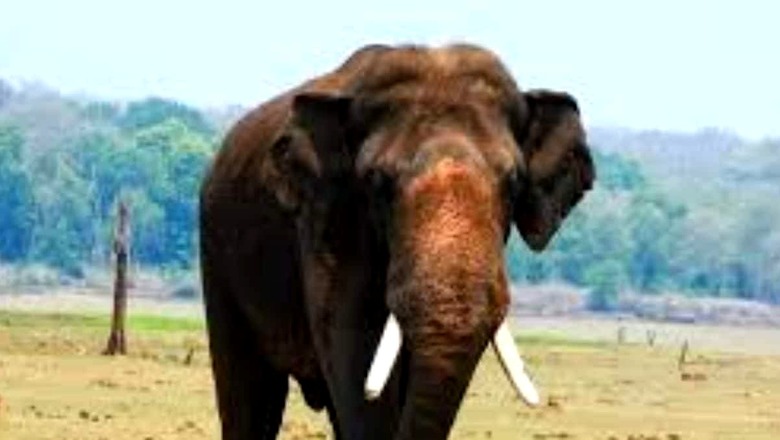
views
Amid serious health concerns and an intervention from the Union government, elephant Rupavathi is being transported from Karnataka to Telangana for the Muharram and Bonalu processions in Hyderabad.
The pachyderm was temporarily held on her way to Telangana following a letter from the Centre, which demanded a report on her health status. The directive had come after People for Ethical Treatment of Animals (PETA) had pointed out that as the elephant was suffering from several ailments, she should not be allowed to take part in the processions. However, Rupavathi is on her way to Hyderabad now after officials reportedly gave their nod. Following this, PETA has offered a mechanical elephant to the government to be used instead of Rupavathi.
Talking to News18, a member from PETA said: “Upon examination, veterinary experts informed PETA India that Rupavathi is unfit for transportation and participation in events, adding that she appears to show signs of prolonged physical suffering and requires rehabilitation at a reputable sanctuary. As per their assessment, both her forelimbs are indicative of arthritic changes, while she appears blind in one eye and generally visually impaired. Additionally, her foot pads are flattened and lack contouring, which causes her pain and puts her at an increased risk of slipping on city roads and other surfaces.”
The pachyderm saga started when Telangana forest minister Konda Surekha had made arrangements to bring an elephant, Rupavathi, from the Sri Jagadguru Panchacharya Mandir Trust in Davanagere of Karnataka to be used in Muharram and Bonalu processions. However, the animal’s transport was halted on Karnataka-Telangana border following a directive from the Union government.
After it was announced that Rupavathi was being transported from the neighbouring state, PETA wrote to Konda Surekha requesting her to prevent the use of elephants in Bibi-ka-Alam (Muharram) procession as the animals undergo extreme physical and psychological stress during such events.
Speaking to News18, Farhat Ul Ain, senior advocacy officer of Peta India, said: “We had requested the government to use a mechanical elephant instead for the processions. They are already being used in a few temple events in southern India. We also brought to their notice that Rupavathi is suffering from various ailments like arthritis and poor eyesight. She cannot withstand the long commute.”
Farhat also wrote to the chairman of the Telangana State Waqf Board; and Janab Prince Azmet Jah, chairman of HEH The Nizam’s Religious Trust, regarding the issue.
In response to this, the Union Ministry of Environment, Forest and Climate Change wrote to the chief wildlife warden of Karnataka government to suspend the permission order of the transport.
Ramesh Kumar Pandey, Inspector General of Forests (PT&E) wrote: “It is communicated that a thorough medical check-up of the said captive elephant must be carried out by a team of veterinarian and medical report be submitted to this ministry immediately. Meanwhile, the permission granted for transfer/transport of the said captive elephant may be kept on abeyance till the directions/concurrence of the High Power Committee, constituted by the Hon’ble Supreme Court is received in this matter. A compliance report may be submitted to the Ministry at the earliest for further needful please.”
In view of this order, the rehearsal of the Muharram procession, which was scheduled on Sunday, had been cancelled. However, since the elephant in on her way to Hyderabad now, the rehearsal might take place.
Explaining that using animals in processions can be dangerous for people, Farhat told: “During these processions, loudspeakers and drums play at a loud volume for hours. Such noise and chaos are traumatic for any elephant, who are controlled by the use of painful weapons. As a result, they might lash out and pose a danger to everyone. There have been many instances in the past when elephants have run amok and caused mayhem. Furthermore, using elephants for Muharram processions and other similar festivals may violate The Prevention of Cruelty to Animals (PCA) Act, 1960.”




















Comments
0 comment